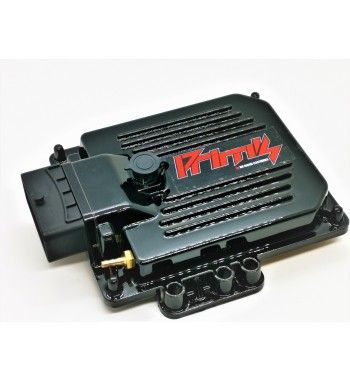- today
- perm_identity Admin
- label HOME
- favorite 2 likes
- remove_red_eye 5394 views
- comment 0 comments

Introduction:
Motorsports have always been at the forefront of automotive innovation and technological advancements. Over the years, one crucial component that has revolutionized the performance and tuning capabilities of race cars is the standalone Electronic Control Unit (ECU). This article explores the origin and evolution of standalone ECUs in motorsports, highlighting their impact on vehicle performance and the freedom they provide to unleash the power within.
The Emergence of Engine Control Units:
In the early days of motorsports, engine control was primarily mechanical, with carburetors and mechanical fuel injection systems governing the fuel-air mixture. However, as the quest for increased performance intensified, there arose a need for more precise control and real-time adjustments to maximize engine power and efficiency.
The Birth of Standalone ECUs:
Standalone ECUs emerged as a response to this need for advanced engine control systems. These independent, programmable units replaced the factory-installed ECUs, which were often limited by pre-set calibrations and locked parameters. The standalone ECUs offered motorsport teams the freedom to customize and optimize engine parameters according to their specific performance goals.
Early Development and Adaptation:
The development of standalone ECUs gained momentum in the 1980s when pioneers from Australia started introducing their programmable engine management systems. These early systems featured microprocessors capable of controlling critical engine functions such as fuel injection, ignition timing, and boost pressure. Motorsport teams quickly realized the competitive advantage they could gain by harnessing the full potential of these standalone ECUs.
Advantages and Performance Benefits:
Standalone ECUs provide several advantages over factory ECUs, making them an indispensable tool for motorsports. Some key benefits include:
1. Customization: Standalone ECUs offer extensive flexibility and customization options, allowing tuners to fine-tune engine parameters to suit specific track conditions, fuel types, and engine modifications. This level of control ensures optimal performance and reliability.
2. Real-time Adjustments: Motorsport teams can make instant adjustments to fuel maps, ignition timing, and boost levels during races or test sessions. This adaptability allows them to extract the maximum potential from the engine while maintaining reliability.
3. Data Logging and Analysis: Standalone ECUs incorporate advanced data logging capabilities, enabling teams to collect vital engine performance data during races. This data can be analyzed post-race to fine-tune engine setups and diagnose any issues. Modern Standalone ecu's like the RM-Primis have a huge sampling rate for all engine management variables, the access to this information turns the tuning process into an easier task improving the user experience as a whole.
4. Expanded Compatibility: With standalone ECUs, motorsport teams have the flexibility to use a wide range of sensors, injectors, and ignition systems, expanding their options for performance upgrades and modifications.
5. Future-Proofing: As automotive technology continues to evolve rapidly, standalone ECUs offer the advantage of upgradability. They can be reprogrammed or upgraded with new firmware to support emerging technologies, ensuring long-term compatibility and performance enhancements.
The Impact on Motorsports:
The introduction of standalone ECUs revolutionized motorsports, leveling the playing field and empowering teams to extract the maximum potential from their engines. Tuners and engine builders now have the freedom to unleash their creativity and expertise, pushing the boundaries of performance to new heights.
Not only did standalone ECUs enhance engine performance, but they also played a crucial role in improving fuel efficiency and reducing emissions. The precise control over fuel delivery and ignition timing enabled teams to optimize combustion, resulting in cleaner and more efficient engine operation.
Conclusion:
Standalone ECUs have become an integral part of modern motorsports, transforming the way engines are controlled and optimized. These remarkable devices have empowered motorsport teams with unprecedented control, customization, and data-driven insights. As technology continues to evolve, standalone ECUs will undoubtedly continue to push the limits of performance, ensuring that motorsports
Related products
Universal Standalone ecu Wire-In RM-Primis by RM Racing Electronics
Universal wire-in Programmable ECU, Standalone Ecu


comments (0)